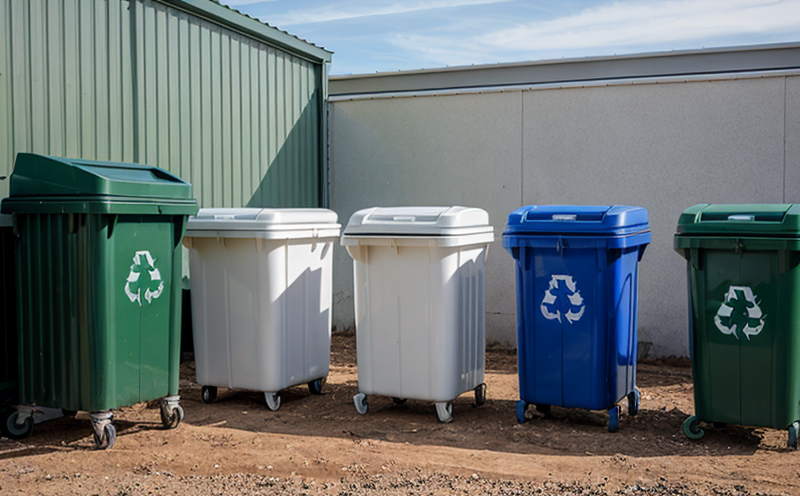ISO 18604-2 Recyclability Assessment for Packaging
The ISO 18604 series of standards is designed to provide a framework for the assessment and communication of recyclability in packaging. This particular standard, part two (ISO 18604-2), focuses on the characterization and quantification of packaging materials aimed at assessing their potential for recycling.
The service offered here aims to help manufacturers comply with regulatory requirements by providing a detailed assessment of how their packaging products will perform in different recycling streams. This is crucial as it ensures that the materials used are not only sustainable but also recyclable, thereby reducing waste and environmental impact.
Our team of experts uses cutting-edge technology and methodologies to ensure accurate assessments. We start by collecting samples from various stages of production or supply chains. These samples undergo rigorous testing using state-of-the-art equipment such as FTIR spectrometers, thermal gravimetric analyzers (TGA), and differential scanning calorimeters (DSC).
The process involves several steps:
- Sample preparation: Ensuring that the samples are representative of the actual packaging used.
- Material characterization: Identifying the chemical composition of the materials involved.
- Thermal analysis: Analyzing how different components behave under heat, which is crucial for understanding their recyclability.
The results are then analyzed according to ISO 18604-2 guidelines. This includes determining the percentage of recoverable material that can be reintegrated into manufacturing processes without significant loss in quality or function. Compliance with these standards ensures that packaging is designed not just for use but also for reuse and recycling.
Our service offers more than just compliance; it provides insights into how to optimize packaging design for better recyclability. By understanding the behavior of materials during thermal treatment, we can recommend changes that enhance their recyclability while maintaining or improving performance characteristics.
For instance, certain additives may improve processibility but could hinder recycling processes. Our expert team helps identify such trade-offs early in the product development cycle, allowing for informed decision-making.
Applied Standards
The primary standard applied in this service is ISO 18604-2: Recyclability Assessment of Packaging. This international standard provides a methodology for assessing the recyclability of packaging materials by characterizing their properties and determining recoverable material content.
Additionally, we also adhere to other relevant standards such as ASTM D5437, which deals with the use of near-infrared spectroscopy (NIRS) for determining recyclability; EN 12456, concerning the estimation of biodegradation in soil; and IEC 60695-11, providing guidelines on heat resistance testing.
| Standard | Description |
|---|---|
| ISO 18604-2: Recyclability Assessment of Packaging | This standard provides a framework for assessing the recyclability of packaging by characterizing material properties and determining recoverable content. |
| ASTM D5437: Near-Infrared Spectroscopy (NIRS) | American Society for Testing Materials standard for using NIRS to determine recyclability. |
| EN 12456: Estimation of Biodegradation in Soil | This European standard outlines methods for estimating biodegradability under soil conditions. |
| IEC 60695-11: Heat Resistance Testing | International Electrotechnical Commission guideline for heat resistance testing of materials used in electrical and electronic products. |
Scope and Methodology
The scope of this service includes the comprehensive evaluation of packaging materials for their recyclability according to ISO 18604-2 standards. This involves several key steps:
- Collection and preparation of samples from various stages of production or supply chains.
- Characterization of material properties using advanced analytical techniques like FTIR spectroscopy, TGA, and DSC.
- Evaluation of thermal stability to understand the behavior under heat conditions.
Benefits
- Compliance with international standards ensuring sustainable practices.
- Identification and optimization of materials for better recyclability, reducing environmental impact.
- Informed decision-making early in the product development cycle to minimize risks associated with non-recyclable components.





